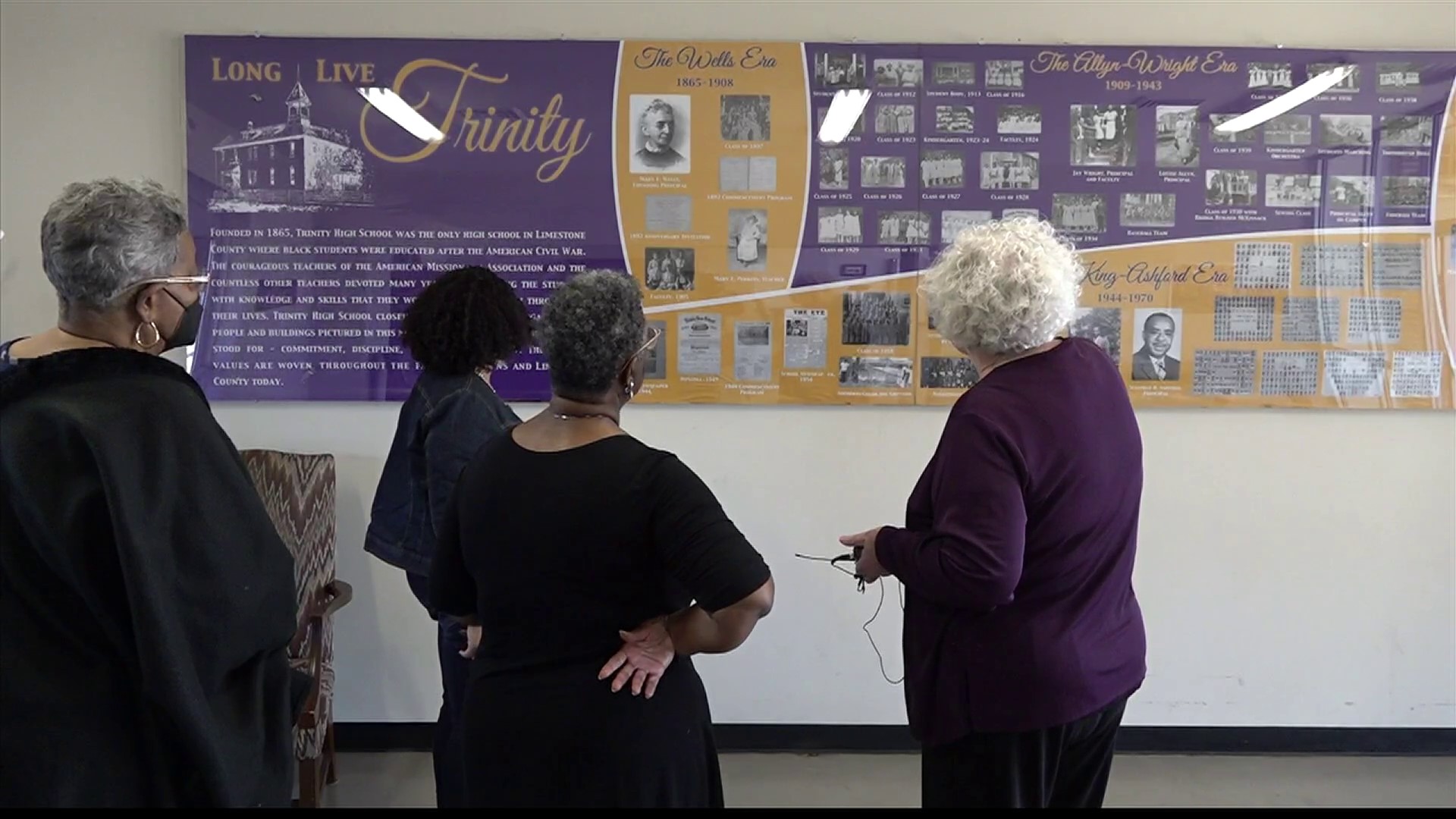ATHENS, Ala. — On the site of the Clinton Street Courthouse Annex in Athens is a milestone of Black history in North Alabama. More than 160 years prior, it was home to the Trinity School, a place of education for former slaves. Trinity was founded in 1865, primarily through the efforts of a white woman, Miss Mary Frances Wells, who acted as the school's principal and chief proponent.
Trinity Hall was built there from 1881 to 1882 as a joint effort by the American Missionary Society and local African-Americans who made and laid the building's bricks by hand.
That building burned down in 1907, and was rebuilt the following year on the old Civil War site west of Athens. It is now known as the Pincham-Lincoln Building.
Eugene Pincham and Dr. C. Eric Lincoln were graduates who wrote extensively about their time at Trinity, and of the great teachers who taught them.
Athens-Limestone County Community Association members Carolyn Williams, Charlotte Fulton, Dr. Barbara Clemons and Della Darby took us on a tour of the site. ALCA is a board made up of Trinity graduates and other community leaders.
Trinity, which closed in 1970, was the only Black high school in Limestone County. The board works toward preserving the history and legacy of the school.
Fulton said the site of the Pincham-Lincoln Building had been a fort that Union soldiers built, and is probably the most historical spot in Limestone County.
Until the 1940s, there was no transportation to the Black schools. You had to have other resources or the will to walk to get to class.
While doing research, Fulton said they learned that in 1940, a student who lived in East Limestone walked the six miles and back between school and his home.
"He had several brothers and sisters," Fulton explained, "and as they walked to school, the white school bus would pass and they would put the windows down, and jeer at them and throw things at them.
"Sometimes when they got to school they would have whatever the students had thrown on them," she continued. "Sometimes it was rotten tomatoes, and he said there were times when he had to sit in the furnace room and dry off before he could go to class."
His is just one of dozens of stories from Trinity's history, and ALCA hopes to put them all on display. The group hopes to one day cut the ribbon on an envisioned Trinity History Center. They will be applying for a grant to help make that happen.
Until then, their mission is to continue telling the story.

